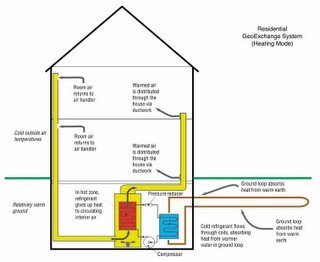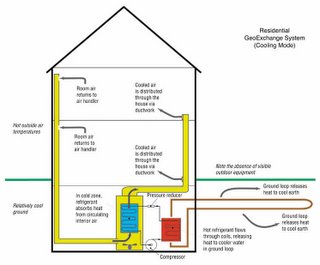What is a ground source heat pump?
Ground source heat pumps (GSHPs) are electrically powered systems that tap the stored energy of the greatest solar collector in existence: the earth. These systems use the earth's relatively constant temperature to provide heating, cooling, and hot water for homes and commercial buildings.
How do ground source heat pumps work?
Ground source heat pumps can be categorized as having closed or open loops, and those loops can be installed in three ways: horizontally, vertically, or in a pond/lake. The type chosen depends on the available land areas and the soil and rock type at the installation site. These factors will help determine the most economical choice for installation of the ground loop.
For closed loop systems, water or antifreeze solution is circulated through plastic pipes buried beneath the earth's surface. During the winter, the fluid collects heat from the earth and carries it through the system and into the building. During the summer, the system reverses itself to cool the building by pulling heat from the building, carrying it through the system and placing it in the ground. This process creates free hot water in the summer and delivers substantial hot water savings in the winter.
Open loop systems operate on the same principle as closed loop systems and can be installed where an adequate supply of suitable water is available and open discharge is feasible. Benefits similar to the closed loop system are obtained.









0 Comments:
Post a Comment
<< Home